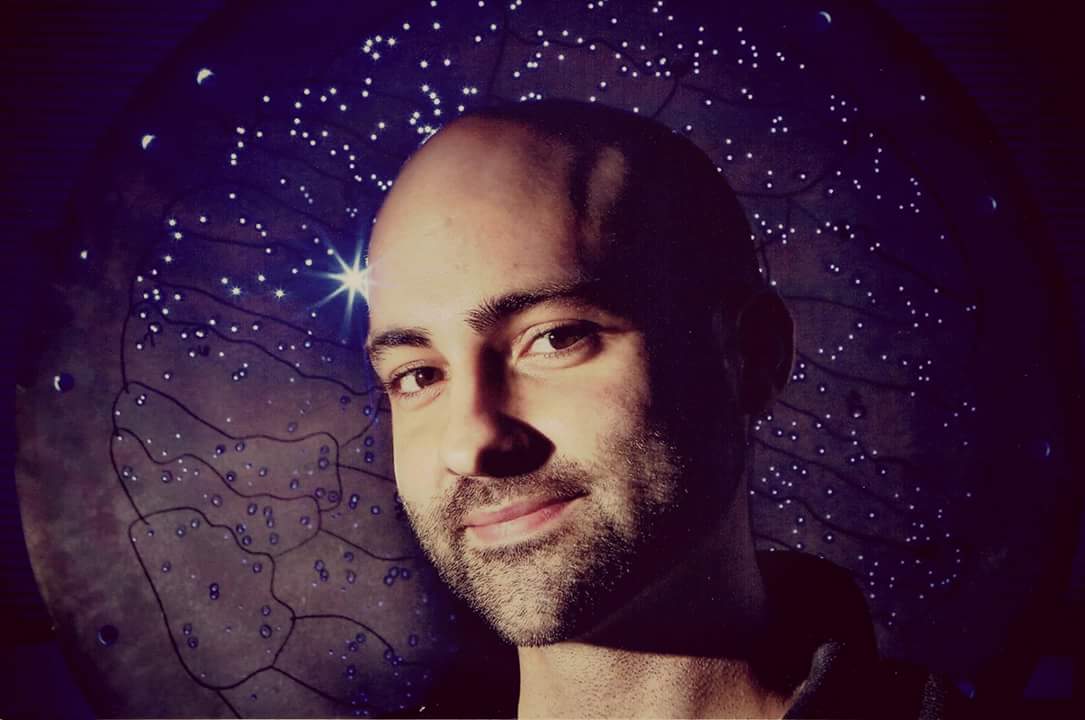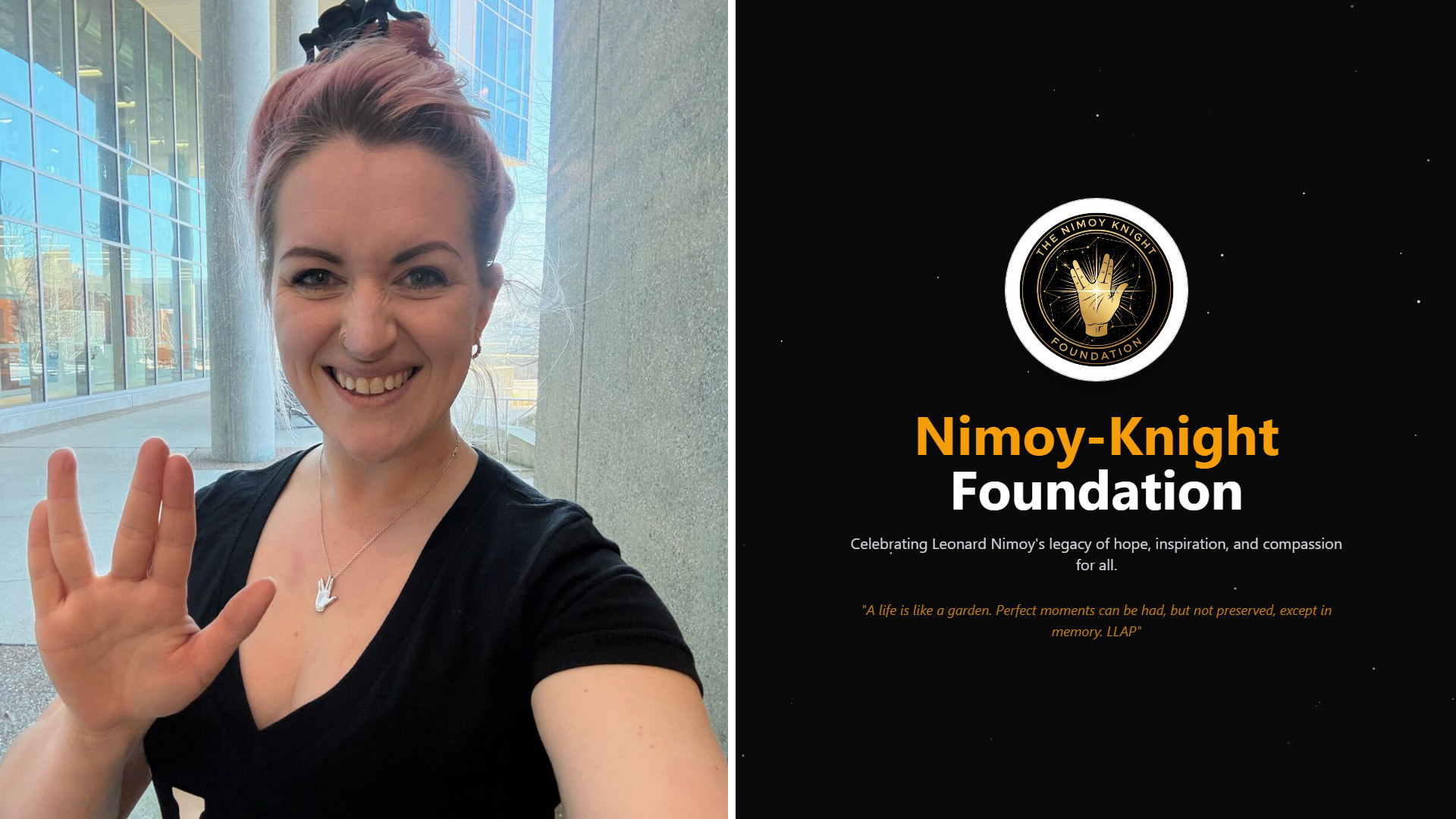
What Does It Take to Be an Astrophysicist?

Breaking space news, the latest updates on rocket launches, skywatching events and more!
You are now subscribed
Your newsletter sign-up was successful
Want to add more newsletters?

Delivered daily
Daily Newsletter
Breaking space news, the latest updates on rocket launches, skywatching events and more!

Once a month
Watch This Space
Sign up to our monthly entertainment newsletter to keep up with all our coverage of the latest sci-fi and space movies, tv shows, games and books.

Once a week
Night Sky This Week
Discover this week's must-see night sky events, moon phases, and stunning astrophotos. Sign up for our skywatching newsletter and explore the universe with us!

Twice a month
Strange New Words
Space.com's Sci-Fi Reader's Club. Read a sci-fi short story every month and join a virtual community of fellow science fiction fans!
Paul Sutter is an astrophysicist at The Ohio State University and the chief scientist at COSI science center. Sutter is also host of Ask a Spaceman and Space Radio, and leads AstroTours around the world. Sutter contributed this article to Space.com's Expert Voices: Op-Ed & Insights.
Jumping into the world of astronomy and physics as a career can seem daunting, especially for precocious high schoolers with a passion for the field.
It's relatively easy to get interested in astronomy, especially as a kid — after all, what's cooler than monster black holes, stars and planets galore, swirling nebulas and galaxies? And what can't be accessed through online videos or books can be enjoyed through the simple and visceral pleasure of a clear, dark night. [Astronomy Gear Guide: Tools, Tips and Tricks to Stargaze Like a Boss]
There are all sorts of awesome sights in the sky. What's not to love? But as soon as curious youngsters dip their toes past the pretty pictures, they're bound to find that the world of the professional astronomer is full of complicated theories, mountains of data to painstakingly analyze, and whiteboards full of tedious calculations.
It turns out that nature does not reveal its secrets willingly or easily. It takes countless hours of work by armies of dedicated professionals to understand the deepest workings of our cosmos.
So how does one make the jump? How do you go from a basic interest in the field to a full-fledged independent scientific research track? What are the skills you'll need? If you're considering a college degree in astronomy or physics, or know someone in your life who is, read on.
You are not yet ready
The key message I try to convey about an astro-career is that it takes time. Lots of time. You'll need four to six years just for a bachelor's degree, which is true of many other professions. Then comes graduate school, which can take anywhere from five years for theorists up to seven or eight for experimentalists and observers. Then comes a postdoctoral research appointment, where your on-the-job training continues outside of your Ph.D. institution. In astronomy and physics, you typically have two or three of these two-to-five-year stints before you're considered ready for a faculty job at a major research university.
Breaking space news, the latest updates on rocket launches, skywatching events and more!
So by the time you're middle-age, congrats: You now officially have a stable career in science!
Part of the delay in going from pursuing a degree to getting a dedicated job is the general lack of funding in astronomy and physics, and I'll talk about that more in another article. But another part is that it simply takes time to bring someone up to speed in academic research. You need your base knowledge, which is hundreds of years of accomplishments and accumulated wisdom compacted into a few short classes. Classical physics, statistical mechanics, relativity, electromagnetism and quantum mechanics form the backbone of a physics degree, with some more work on optics and common astrophysical processes added to extend to an astronomy degree. [The Weirdest Jobs In Science]
Classes usually peter out once you're a couple of years into graduate school. The remainder of your time is spent working on your dissertation research under the guidance of your adviser, and that's where the real training comes in. That's when you learn how to be an actual scientist, not just have science facts and methods shoved into your cranium day after day.
It's over the years of your thesis research that you learn how to prepare a poster or presentation at a conference without looking like an idiot, how to handle questions from competing researchers who are trying to poke holes in your work, how to take naps during conference calls, how to shove all the right introductory fluff and jargon into a paper, how to read a paper while looking for clues of what to work on next, how to ask intelligent-sounding and relevant questions during a seminar, how to beat the analysis software into submission, how to properly format a figure for publication, and on and on.
During those years, you're also brought up to speed on the true state of the art in the field, and you learn things that the classes, with curricula probably designed two decades ago, simply haven't caught up on. You learn what people are working on right now, and where you can push to advance the current limits of human understanding.
In these roles, your adviser is crucial. This person is not only your mentor but also your colleague and co-worker. Initially, they guide you and help shape your research directions, but very quickly, they'll be learning from you about your latest discoveries and newest methods. That is why they hire you, after all — to train you at first, but with the aim of making you useful.
Out-of-this-world skills
While physics and astronomy require a healthy dose of mathematics (either in theoretical calculations or observational analysis), almost all of it is learned over the course of your graduate career. Even advanced undergraduate classes teach you only the basic outlines of the actual math you will employ throughout your career.
So if the math seems overwhelming, don't fret. You're never expected to jump into a full-time research gig fully equipped with all the mathematical tools at your disposal. They're taught to you, fed to you, slowly and steadily, over the course of years. Techniques that seem like straight-up wizardry become, after sufficient practice, as second nature as blinking. Not up to speed with the latest computer programming techniques? That will come too, whether you like it or not.
The truth is that you're not expected to be an expert at the most difficult parts of being a scientist. That's the entire point of the long, drawn-out training process. What you are expected to have is something far simpler: pure determination. It's only through grit and sheer force of will that you'll be able to handle the workload, the long hours, the blind alleys, the outright failures, the critiques and the wrestling with nature.
If you have a healthy dose of perseverance and a lot of curiosity, you have what it takes to be a scientist.
Learn more by listening to the episode "How does one become an astrophysicist?" on the Ask A Spaceman podcast, available on iTunes and on the Web at askaspaceman.com. Thanks to @92Rufino and Vicki K. for the questions that led to this piece! Ask your own question on Twitter using #AskASpaceman or by following Paul @PaulMattSutter and facebook.com/PaulMattSutter.
Follow us @Spacedotcom, Facebook and Google+. Original article on Space.com.

Paul M. Sutter is a cosmologist at Johns Hopkins University, host of Ask a Spaceman, and author of How to Die in Space.

